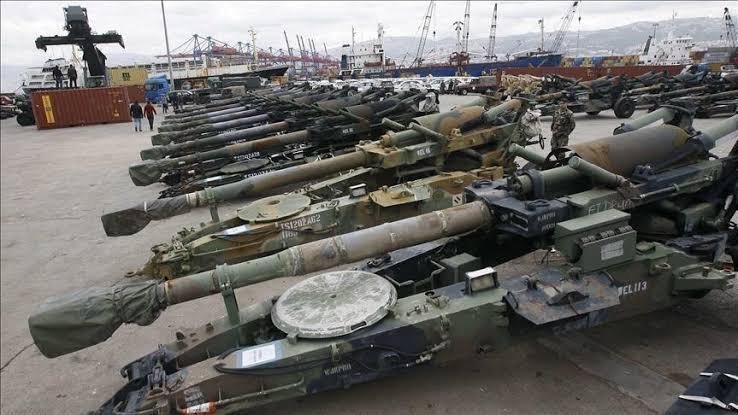Berlin, June 30, 2024, The Europe Today: German arms exports surged by 30% in the first six months of 2024 compared to the same period in 2023, according to data from the Economy Ministry released on Sunday. Between January 1 and June 18, the government approved weapons exports totaling at least €7.48 billion ($8.01 billion). This figure already represents 60% of the total exports for 2023, setting the stage for potentially record-breaking sales by the end of the year.
The sharp increase in exports comes amidst the governing coalition’s initial commitment to curb arms deliveries, especially to non-EU and NATO members. However, the onset of Russia’s invasion of Ukraine prompted a shift in policy, leading to a significant allocation of arms to Ukraine. Nearly two-thirds of the approved exports, amounting to €4.88 billion, were destined for Ukraine in the first half of the year, reflecting Germany’s role as the second-largest arms supplier to the country after the United States.
Last year’s arms exports hit an all-time high of €12.2 billion, driven by commitments to aid Ukraine. Of this, €6.44 billion accounted for war weapons, with €5.76 billion for other military equipment, including armored vehicles. This upward trend has continued into 2024, with Germany approving significant exports, including air defense systems and heavy artillery, as part of its €10.2 billion military aid commitment to Ukraine since the war’s outbreak.
Aside from Ukraine, the top recipients of German arms included Singapore (€1.21 billion), India (€153.75 million), Saudi Arabia (€132.48 million), and Qatar (€100 million). Saudi Arabia’s re-entry into the top five recipients followed eased restrictions on arms exports last year, despite previous curbs related to the 2018 murder of journalist Jamal Khashoggi and the conflict in Yemen. The Economy Ministry emphasized that exports to Saudi Arabia were linked to joint projects with NATO or EU partners. However, these developments have drawn criticism, with lawmakers accusing the coalition government of deviating from its election promises and potentially escalating regional conflicts.


